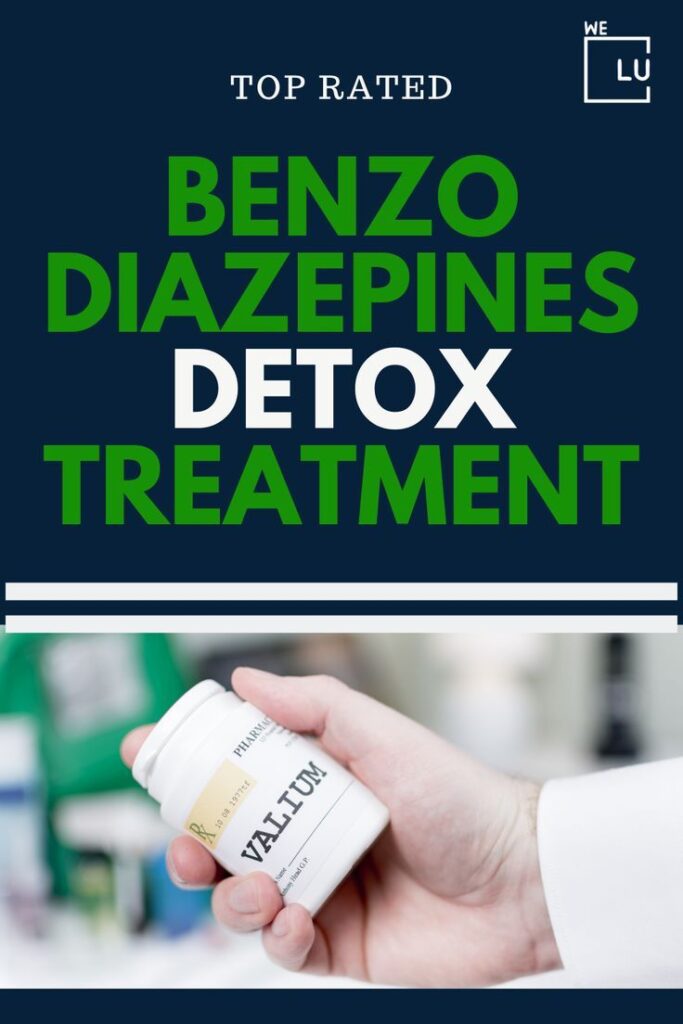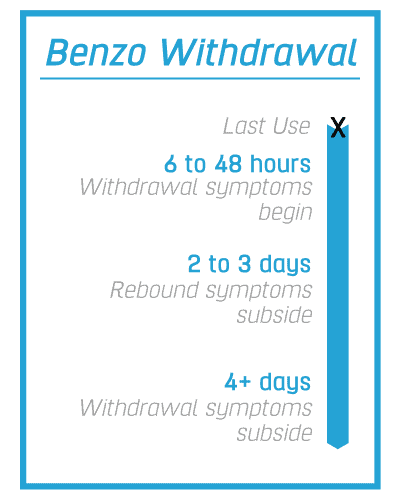Signs of Benzo Addiction and Dependence
Benzodiazepines, known as benzos, were discovered in the early 1960s and are still a mainstay in treating anxiety disorders. It is also used for those struggling with insomnia, anxiety, spasticity due to central nervous system (CNS) pathology, muscle relaxation, and epilepsy. While not typically an indicated use, benzodiazepines for depression have become more common. They effectively treat these conditions therapeutically, but many people abuse them for their calming and euphoric effects.
Chronic abuse of benzos for anxiety and depression often leads to benzo addiction. This is one of the most dangerous drugs to withdraw from; dependence can develop in as little as a month of use, making medically professional benzo detox treatment essential. One of the most significant risks of benzodiazepines and the reason to get into a benzo addiction treatment program is the high risk of overdose. If you take too much of these psychoactive drugs, you risk experiencing benzodiazepine cardiac side effects, which include slowing your heart rate to damaging or fatal levels.
Looking for help with substance abuse challenges like benzo addiction? Join thousands of patients who trusted We Level Up for benzo addiction and other substance abuse treatments. Call 24/7 for more benzo rehab information today. Your call is free and confidential. Access addiction professionals who understand your circumstances and are ready to help.
Are All Benzos Addictive?
Yes, the majority of benzodiazepines have the potential to be addictive due to their impact on the brain’s GABA receptors, which regulate relaxation and anxiety. While some benzodiazepines have a higher risk of addiction than others, they all carry the potential for dependence and should be used under careful medical supervision.
List of Common Benzos
Benzodiazepine detox treatment is a process used to treat the addiction to benzos, but there are many different benzodiazepines on the market. Also, doctors may prescribe one over the other for various reasons. Their patients may have seen more success for one over the other. Here is a list of the different types of benzodiazepines.
Ativan Addiction
Ativan is a medication for anxiety disorders, depression, and panic attacks, but it is only for short-term use due to Ativan’s highly addictive properties. Ativan should only be used under the supervision of a doctor. Most severe side effects associated with Ativan use occur with high doses or when mixed with alcohol.
Side effects include the following:
- Respiratory depression.
- Excessive sedation.
- Seizures.
- Tremors.
- Memory impairment.
- Loss of consciousness.
Halcion Addiction
Halcion is a brand name for triazolam. It is prescribed to treat anxiety, schizophrenia, psychosis, and insomnia. However, Halcion is a controlled substance often abused because it may cause a “high” similar to alcohol intoxication.
Signs that you may have an addiction to Halcion include the following:
- Repeated, unsuccessful attempts to quit.
- A lot of time was spent recovering from Halcion’s effects.
- Cravings for the drug.
- Ignoring essential obligations.
- Needing more Halcion to feel its effects.
Klonopin Addiction
Klonopin (clonazepam) has a high potential for abuse and addiction, even when prescribed to treat a medical condition. It is a long-acting benzo. Therefore, it takes longer to feel its full effects. Once it leaves the body, a person can experience severe and potentially life-threatening Klonopin withdrawal symptoms.
Smoking Klonopin is among the most dangerous and fastest of all drug effects delivery methods. When someone abuses Klonopin or takes doses that are too high or uses it for long periods, they may exhibit symptoms such as:
- Dizziness.
- Vertigo.
- Fainting.
- Numbness.
- Impaired cognition.
- Confusion.
- Slow reaction time.
- Impaired judgment.
- Reduced libido.
Xanax Addiction
Xanax is a fast-acting benzodiazepine medication. Therefore, it brings about a significant change in the brain in a short period. As a result, it is one of the most addictive benzodiazepine medications on the market today. Risks are higher in people who take doses of 4 mg/day for longer than 12 weeks, but anyone who abuses the drug could be at risk for Xanax addiction.
Both Xanax and alcohol act on your central nervous system in the same way; they are both depressants, slowing your system down. Every container of Xanax comes with a warning label that reminds patients not to mix it with alcohol. When people combine drugs, they risk overdose, even more so than when they only abuse one substance at a time. Such happens when people mix Klonopin and Xanax as well.
Common short-term side effects of Xanax include the following:
- Drowsiness.
- Difficulty concentrating.
- Slurred speech.
- Lightheadedness.
- Confusion.
- Impaired memory.
- Low blood pressure.
- Slowed breathing.
Librium Addiction
Librium is a medication typically for the treatment of anxiety disorders. However, Librium can be habit-forming and presents a risk of abuse and addiction. Misuse of Librium occurs when used in larger doses, more often, or for longer courses than directed by a doctor.
Some physical effects that signify someone is abusing Librium include the following:
- Dry mouth.
- Appetite changes.
- Upset stomach.
- Drowsiness.
- Dizziness.
- Slurred speech.
- Coordination problems.
- Unsteady gait.
- Slowed movements.
- Uncontrolled eye movements.
- Stupor.
- Coma.
Valium Addiction
Valium is the brand name for diazepam, which treats muscle spasms and seizures. When prescribed, it’s meant to be taken daily. However, people taking more Valium than recommended are at risk of addiction. Valium is especially dangerous when mixed with other central nervous system depressants like alcohol. While some users combine Valium and alcohol or other drugs to intensify their calming effects, others take Valium with other substances without being aware that they are endangering their health and safety.
Side effects of Valium abuse include the following:
- Drowsiness.
- Weakness.
- Blurred vision.
- Seizures.
- Skin rash.
- Irregular heartbeat.
- Confusion.
- Dizziness.
- Slowed breathing.
Benzo Addiction Diagnosis
Diagnosing benzo addiction typically involves a comprehensive assessment conducted by a healthcare professional. This assessment may encompass a thorough medical history review, physical examination, and mental health evaluation.
Critical indicators of benzo addiction might include escalating tolerance, unsuccessful attempts to cut down or quit usage, spending significant time obtaining or recovering from the effects of benzodiazepines, neglecting essential obligations, and experiencing withdrawal symptoms when not using the substance. The Diagnostic and Statistical Manual of Mental Disorders (DSM-5) provides criteria that can guide clinicians in accurately diagnosing benzodiazepine use disorder.
Benzodiazepine Overdose Symptoms
The most significant risk of using benzodiazepines is potentially overdosing. With a propensity for developing a tolerance, the longer someone takes benzodiazepines, the greater dosage they will likely need to take to achieve the desired effect and the greater the risk of overdosing. As a sedative, benzos cause breathing to slow. In turn, less oxygen is passed through the lungs to the brain and the rest of the body. When a dose too great is taken, breathing slows to the point of being potentially fatal.
Signs of a Benzo Overdose
How do you know someone is experiencing a benzodiazepine overdose? The most telling sign of benzo overdose is excessive sleepiness or drowsiness. The person may be difficult to rouse, have trouble standing up or fall repeatedly. Look for signs of confusion and speech that is slurred.
Other common signs of a benzo overdose include:
- Breathing that is slow or shallow.
- Low blood pressure.
- Pupils that are dilated.
- Bluish lips.
- Slowed or absent muscle reflexes.
- Pulse that is rapid or weak.
- Skin that feels clammy.
- Coma.
Benzodiazepine Overdose Treatment
Treating a benzodiazepine overdose is a medical emergency that requires prompt attention. If someone is suspected of overdosing on benzodiazepines, it’s crucial to call emergency services immediately. Medical professionals will closely monitor the individual’s vital signs, such as heart rate, blood pressure, and breathing. They may administer oxygen and provide intravenous fluids to stabilize the person’s condition.
In severe cases of compromised breathing, assisted ventilation or intubation might be necessary to ensure the person receives adequate oxygen. If the overdose has led to complications such as seizures, arrhythmias, or other medical issues, those will be treated accordingly. Remember that a benzodiazepine overdose can be life-threatening, and seeking immediate medical help is crucial.
How Long Does It Take To Get Addicted To Benzos?
The timeframe for developing a dependence on benzodiazepines can vary widely among individuals. Some individuals might start to experience tolerance (needing higher doses for the same effect) within a few weeks of regular use, potentially leading to psychological dependence.
Physical dependence, characterized by withdrawal symptoms when not using the drug, can develop within weeks to a few months of consistent use. However, the risk and speed of developing addiction are influenced by dosage, frequency of use, genetics, and underlying mental health conditions.
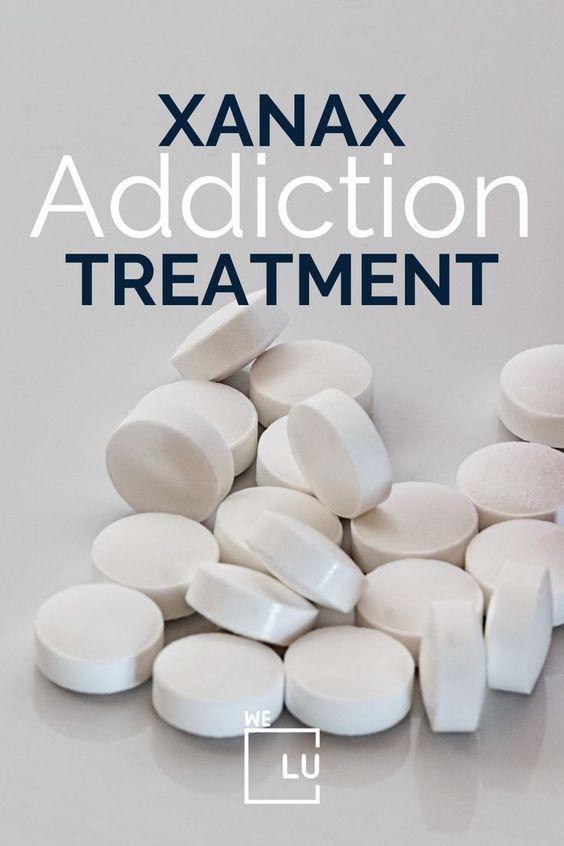
Skip To:
Learn More:
- Benzo Detox Timeline, Withdrawal Symptoms, Care & Treatment
- The Dangers of Combining Benzos and Alcohol
- How Does Benzodiazepine Withdrawal Kill You?
- What is Benzodiazepine Withdrawal Psychosis?
- Benzodiazepines Cardiac Side Effects
- Risks of Benzodiazepines, Uses, Side Effects, and Drug Abuse
- Benzos and Depression. Can One Cause The Other?
- Benzos for Anxiety and Depression
- Ativan Vs Valium. What’s the Difference?
- Is Xanax Addictive? Signs, Effects & Treatment
Get addiction counseling that works. Discover professional help from We Level Up’s addiction and mental health therapists. Start getting support with a free call to our addiction hotline.
Get Help. Get Better. Get Your Life Back.
Searching for Accredited Drug and Alcohol Rehab Centers Near You?
Even if you have failed previously and relapsed, or are in the middle of a difficult crisis, we stand ready to support you. Our trusted behavioral health specialists will not give up on you. When you feel ready or just want someone to speak to about therapy alternatives to change your life call us. Even if we cannot assist you, we will lead you to wherever you can get support. There is no obligation. Call our hotline today.
(844) 597-1011Featured We Level Up Benzo Addiction Treatment Centers
Overcoming benzo addiction can be challenging and lonely. Many people struggle to quit independently and often relapse to alleviate their symptoms or satisfy their cravings.
However, with We Level Up’s therapy and a robust support system, you can experience a more manageable withdrawal and successful recovery. If you require assistance with rehab, don’t hesitate to contact a treatment advocate 24/7.

We Level Up New Jersey
Drug & Alcohol Addiction Treatment Center w/Detox
Licensed & Accredited w/ 5-star reviews.- Inpatient addiction rehab center w/medical detox
- Addiction treatment and detox for alcohol, benzo, heroin, opioid, and more.
- Secondary mental health treatment available as part of our dual diagnosis programs.

We Level Up Washington
Premier Behavioral Health Treatment Center
Licensed & Accredited w/ 5-star reviews.- Inpatient mental health treatment center
- Therapy for depression, anxiety, trauma, bipolar disorder, PTSD, and more.
- Dual diagnosis rehab programs available

We Level Up California
Drug & Alcohol Addiction Treatment Center w/Detox
Licensed & Accredited w/ 5-star reviews.- Inpatient addiction rehab center w/medical detox
- Addiction treatment and detox for alcohol, benzo, heroin, opioid, and more.
- Secondary mental health treatment available as part of our dual diagnosis programs.
View more We Level Up treatment centers.
Signs of Benzo Addiction
Benzo drug addiction is a disease of the mind identified by psychological and physical dependence components. Drug addiction results in drug-seeking behaviors and continued use despite adverse outcomes.
For example, drug-seeking behaviors with a benzodiazepine may involve getting the drug from multiple providers or illegally obtaining the medicine without a doctor’s prescription.
Benzo addiction can result in negative consequences in many life functions. These consequences may include family or relationship problems, loss of work productivity, or legal issues.
Benzodiazepines or benzos are habit-forming, and an individual can become addicted to them, even if it’s taken as prescribed by doctors or health care professionals. People who have a history of alcohol or drug misuse are more likely to develop a benzo addiction. If you use these drugs over a long period, you can create a tolerance for them. This means that you will need higher doses of the drug to treat your health condition or disease because you’ve become tolerant of the lower dosage of the drug.
Signs of benzo addiction may include the following:
- Illegally obtaining the drug.
- Getting the drug from multiple doctors.
- Cravings for the drug.
- Preoccupation with obtaining the drug.
- Continued use despite negative consequences.
- Misusing the prescription for intoxication or pleasure.
- Interference with normal life functions.
- Dependence and withdrawal upon stopping the medication.
- Relationship problems.
- Legal issues.
Benzo Addiction Drug Facts
Can You Get Addicted To Benzodiazepines?
Benzodiazepines are central nervous system depressants commonly prescribed to treat anxiety, panic attacks, and insomnia. They’re also used to treat symptoms of alcohol withdrawal and to sedate patients before surgery. When used as a doctor prescribes, the drugs are safe and effective. However, using benzodiazepines for other purposes can cause benzo addiction and severe health problems.
Benzodiazepines are commonly prescribed medicines. In 2019, an estimated 92 million benzodiazepine prescriptions were dispensed from the US outpatient retail and mail-order pharmacies, with alprazolam (38%) being the most common, followed by clonazepam (24%) and lorazepam (20%). Individuals abusing benzo drugs obtain them by getting prescriptions from several doctors, forging prescriptions, or buying diverted pharmaceutical products on the illicit market.
Benzo addiction is a disease that makes people compulsively use benzos even though the drugs harm their health and well-being. Quitting benzos suddenly can cause life-threatening withdrawal symptoms. Rehab helps people safely stop taking these drugs. Benzodiazepine dependence can differ from benzo addiction because addiction develops only in some people. When a person takes benzodiazepines for multiple days or weeks, the brain adapts to the presence of the drugs. As a result, it begins to depend on the drugs to function. Benzo dependence is the state of relying on benzo to feel normal.
Risks of Benzodiazepines
When prescribed, benzodiazepines usually address associated medical conditions with little risk. The most common side effects of benzodiazepines include drowsiness and feeling hungover. They may also cause confusion, poor concentration, dizziness, slurred speech, and low blood pressure. People under the influence of benzos have an increased risk of being involved in accidents. Someone who doesn’t know how to react to prescription drugs should avoid driving a car or operating machinery.
Elderly individuals sometimes experience breathing difficulties while on benzos and may be at a higher risk of falling. Benzos can also cause congenital disabilities when taken by pregnant women. Benzodiazepine overdoses are rarely fatal unless combined with another substance of abuse. It’s risky to combine benzodiazepines with alcohol, opioids, or other depressants. The drugs can make a person pass out and stop breathing because depressants slow respiration. The drugs are also used in some sexual assaults. Moreover, slipping a benzodiazepine into a person’s drink can render them unconscious.
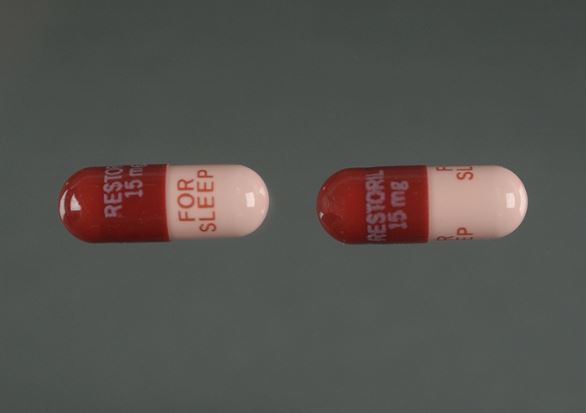
Benzodiazepine Abuse Causes
Although some people may have a genetic tendency to become addicted to drugs, there is no single cause for benzo’s addiction. Some biological risk factors for benzodiazepine abuse include the female gender and the elderly age group.
A noteworthy statistic about benzodiazepine abuse is that women are more likely than men to be prescribed and, therefore, exposed to a benzodiazepine compared to men. Being of the elderly age group is also a risk factor for abusing benzodiazepines since doctors may inappropriately prescribe benzodiazepines for elderly individuals with depressive symptoms.
There is little doubt that environmental factors also play a significant role. Some common ecological influences for benzodiazepine abuse are low socioeconomic status, unemployment, and peer pressure.
Why are Benzodiazepines Addictive?
Like other addictive drugs, benzodiazepines cause a dopamine release. Dopamine is a chemical that contributes to how we feel happiness. Over time, these drugs change the way the brain releases dopamine. This affects the way the person feels pleasure from all activities. As a result, people addicted to benzodiazepines can sometimes feel happy unless they take high doses of the drugs.
Addiction also affects the motivation system in the brain. The brain associates the substances with happiness and causes cravings that motivate the person to take the drugs. Withdrawal is another component of benzo addiction. People who try to quit the pills alone can rarely make it through withdrawal. Instead, the symptoms are typically so uncomfortable that people return to the drugs for relief.
Benzos can also be addictive because they temporarily relieve specific mental health issues. For example, some people self-medicate with benzos to ease anxiety or sleep problems. The drugs can temporarily treat these ailments, but long-term use can make people believe they must have the substances to feel less anxious or sleep.
Symptoms of Benzo Addiction
Recognizing the signs of someone struggling with benzo addiction can be confusing. However, there are a variety of symptoms that can reveal that someone is misusing benzos. It’s essential to take notice of the signs before the symptoms become deadly.
Physical Symptoms
Some physical symptoms that can happen during a benzo addiction, withdrawal, and intoxication include the following:
- Nausea/vomiting.
- Diarrhea.
- Tremors.
- Slowed heart rate.
- Slurred speech.
- Extreme fatigue.
- Blurred vision.
- Slower reflexes.
- Impaired coordination.
- Lightheadedness.
- Seizures.
- Pale, cold skin.
- Respiratory depression.
- Fainting.
Psychological Symptoms
- Irritability.
- Mood swings.
- Amnesia.
- Depression.
- Cognitive dysfunction.
- Suicidal thoughts.
Addiction can lead to a diminished quality of life, as individuals prioritize obtaining and using the substance over personal goals and well-being. It’s essential to take benzodiazepines cautiously and only use them as directed by a medical professional to minimize the risks associated with their misuse and addiction.

Get Your Life Back
Find Hope & Recovery. Get Safe Comfortable Detox, Addiction Rehab & Dual Diagnosis High-Quality Care.
Hotline(844) 597-1011Benzo Abuse Statistics
Benzodiazepine misuse is often more prevalent among adults aged 18-25. Young adults may be at a higher risk for reasons like recreational use and self-medication for stress and anxiety.
10.4 Million
In 2019, roughly 10.4 million people aged 12 or older in the US reported misusing prescription benzodiazepines at least once in the past year.
Source: NCBI
11,537
During the same period, there were around 11,537 overdose deaths involving benzodiazepines in the US.
Source: NCBI
73%
A significant number of benzodiazepine-related deaths involve the co-use of opioids. About 73% of benzodiazepine-involved overdose deaths also involved opioids.
Source: NCBI
Tips for Preventing Benzo Addiction
Preventing benzodiazepine addiction involves responsible use, informed decisions, and seeking help when necessary. Here are some tips:
- Follow Medical Guidance: Only take benzodiazepines as prescribed by a healthcare professional. If you’re prescribed benzodiazepines, discuss your treatment plan, dosage, and potential risks with your doctor.
- Limit Usage Duration: Benzodiazepines are typically meant for short-term use due to their potential for tolerance and dependence. Avoid using them for extended periods unless explicitly directed by your doctor.
- Avoid Recreational Use: Do not use benzodiazepines for recreational purposes or without a legitimate medical need. Misusing these drugs can quickly lead to addiction.
- Regular Check-ins: Schedule regular follow-up appointments with your healthcare provider to monitor your progress and discuss any concerns or changes in your condition.
- Non-Drug Alternatives: Explore non-drug approaches for managing stress, anxiety, and insomnia, such as cognitive behavioral therapy, relaxation techniques, and lifestyle adjustments.
- Avoid Combining Substances: Benzodiazepines can interact with other substances, including alcohol and opioids, leading to dangerous outcomes. Avoid mixing benzodiazepines with any other substances without medical guidance.
- Open Communication: If you experience discomfort, side effects, or concerns about your medication, communicate openly with your healthcare provider. They can help adjust your treatment plan if needed.
- Tapering Under Supervision: If you need to discontinue benzodiazepine use, do not stop abruptly. Work with your doctor to create a tapering schedule to minimize withdrawal symptoms.
- Seek Psychological Support: If you use benzodiazepines to manage mental health issues, consider therapy or counseling as part of your treatment plan.
- Educate Yourself: Understand the potential risks and benefits of benzodiazepine use. Being informed can help you make responsible choices.
- Storage and Access: Keep your medication out of reach of others, especially those who might misuse them. Properly store your medicines to prevent accidental ingestion.
- Know Signs of Addiction: Be aware of signs of dependency or addiction, such as needing higher doses, intense cravings, and difficulty controlling usage. Seek help promptly if you suspect a problem.
- Support Network: Share your medical history and medication use with a trusted friend or family member who can help monitor your well-being.
Remember that addiction is a complex issue, and if you or someone you know is struggling with benzodiazepine misuse or addiction, seeking professional help from medical and mental health professionals is crucial for effective intervention and treatment.
Risks of Combining Benzos and Alcohol
Mixing benzodiazepine with alcohol is very dangerous. People who drink alcohol while taking this drug will feel the effects of alcohol faster. It’s unsafe to drink alcohol or take other medicines that have similar effects on the central nervous system (CNS) simultaneously because these drugs or substances interact with oral benzodiazepines by causing additional depression of the brain and respiratory depression. Respiratory depression can lead to inadequate breathing for supplying oxygen to the body. This can cause death.
First-class Facilities & Amenities
World-class High-Quality Addiction & Mental Health Rehabilitation Treatment
Rehab Centers TourRenowned Addiction Centers. Serene Private Facilities. Inpatient rehab programs vary.
Addiction Helpline(844) 597-1011Proven recovery success experience, backed by a Team w/ History of:
15+
Years of Unified Experience
100s
5-Star Reviews Across Our Centers
10K
Recovery Success Stories Across Our Network
- Low Patient to Therapist Ratio
- Onsite Medical Detox Center
- Comprehensive Dual-Diagnosis Treatment
- Complimentary Family & Alumni Programs
- Coaching, Recovery & Personal Development Events
Benzodiazepine Withdrawal Symptoms
You can reduce the severity of withdrawal symptoms by slowly tapering off the drugs. After a person decreases their dose for a few days, their tolerance drops, becoming less dependent on the substance. The common symptoms of benzo withdrawal are:
- Sweating.
- Panic attacks.
- Tremors.
- Insomnia.
- Seizure.
People who are addicted to benzodiazepines are unable to wean off the drugs on their own slowly. The disease disrupts their judgment, self-control, and motivation. But addiction professionals can help people with severe benzo addiction safely taper.
Benzo Detox and Withdrawal Timeline
Benzo addiction treatment usually starts with a gradual detoxification process. If a person has been taking high levels of benzos for longer than eight weeks, slowly weaning them off the drugs to decrease the severity of withdrawal symptoms is critical. Benzodiazepine withdrawal can cause a range of uncomfortable symptoms, including the following:
- Anxiety and panic attacks.
- Depression.
- Sleep disturbances.
- Muscle twitching and tremors.
- Hypersensitivity.
- Headache.
- Nausea and vomiting.
- Dizziness and lightheadedness.
Inpatient Benzo Addiction Detox
The safest and most comfortable way to detox from benzos is with medical supervision. Inpatient detox is usually warranted when a person takes large doses of benzodiazepines for a long time. During inpatient detox, you’ll be closely monitored and may receive medications to help alleviate symptoms.
Benzo Addiction Post Acute Withdrawal Symptoms
Post-acute benzodiazepine withdrawal symptoms are typically more challenging to identify because of several compounding factors:
- Rebound symptoms: The reappearance of acute withdrawal signs such as anxiety, insomnia, and restlessness. Rather than peaking and reducing intensity over time, acute benzodiazepine withdrawal symptoms come and go inconsistently, making it difficult to tell when the acute phase is over.
- Symptom reemergence: The return of the original symptoms of anxiety, physical tension, and poor sleep that someone had before using a benzodiazepine. Symptom reemergence will feel uncomfortable, but it is unrelated to withdrawal or benzo post-acute withdrawal.
Benzodiazepine Addiction Treatment Recovery Program
Patients taking benzodiazepines should talk to their doctors about a discontinuation plan before taking and quitting the drug. Quitting benzos abruptly can cause fatal side effects. Medical professionals can help patients slowly taper off prescription drugs to avoid severe side effects.
Individuals who are dependent or addicted to benzodiazepines should seek medically supervised detox. Clients in rehab for benzo addiction slowly taper off the drugs while receiving 24/7 monitoring.
Detox from benzos can last weeks or multiple months, depending on the severity of the addiction and the type of benzodiazepine the person has been on. Some benzodiazepines stay in your system longer than others.
Rehabilitation centers are the best resources for people trying to overcome benzo addiction. Rehabs provide safe environments for recovery, teach clients to live without drugs, and provide treatment for co-occurring mental health disorders or other types of addiction.
Do you have questions about benzo addiction or treatment in general? Call our helpline 24/7.
Benzodiazepine Rehab
Once physically stable, you can transition to the next phase of treatment. While everyone’s treatment plan is unique to their needs, most people attend a combination of group and individual therapy and counseling. During rehab, you’ll learn more about the roots of addiction and develop tools to help you cope with cravings and avoid relapse.
Rehab is available on both an inpatient and outpatient basis, depending on the severity of your addiction. The length of treatment may also vary, depending on your situation, but successful treatment typically requires weeks or months.
Inpatient treatment is often the most effective because it allows people to focus 100 percent on their recovery without disrupting their routine.
The Importance of Aftercare for Benzodiazepines Addiction Treatment
While relapse from drug addiction is common, participating in aftercare programs increases your chances of staying sober after you’re done with structured treatment. Aftercare programs reinforce healthy lifestyle choices and stress coping mechanisms. They can also help you recognize relapse triggers and minimize the damage if you relish.
Some people choose to enter sober living after they graduate from rehab. In these drug-free group living environments, they can gently ease back into the demands of regular life. Others may choose individual counseling. Many people in recovery also attend 12-step group meetings for continued support and encouragement. Meetings are usually free and readily available — and studies have demonstrated one-year abstinence rates of 80 to 90 percent when individuals attend self-help group meetings or other types of weekly continuing care after finishing formal treatment.
Finding Treatment for Benzo Addiction
There is a strong link between mental health and substance abuse. Individuals who struggle with mood disorders like depression and anxiety are more susceptible to developing an addiction to drugs or alcohol, often to self-medicate symptoms of their underlying mental health condition. These co-occurring disorders can make each other worse without proper benzo addiction treatment.
To determine the most effective ways to treat benzos addiction, such as Ativan addiction, Xanax addiction, alcohol, and anxiety meds addiction, it’s crucial to assess all the symptoms accurately.
Cravings are very common during detox and can be challenging to overcome. This often leads to relapse. Constant medical care provided during inpatient benzo detox treatment helps prevent relapse.
Overcoming Benzo Addiction. Find the Support You Need.
Withdrawal from benzo is often a challenging process to go through alone. Many people experience relapses during withdrawal in an attempt to alleviate symptoms and satisfy cravings. However, you can manage withdrawal symptoms and successfully recover with detox and rehab therapy and a robust support system at the We Level Up treatment centers. If you require assistance with your rehab journey, contact a We Level Up treatment professional now. Your call is free and confidential.
Get a free rehab insurance check without any obligation.
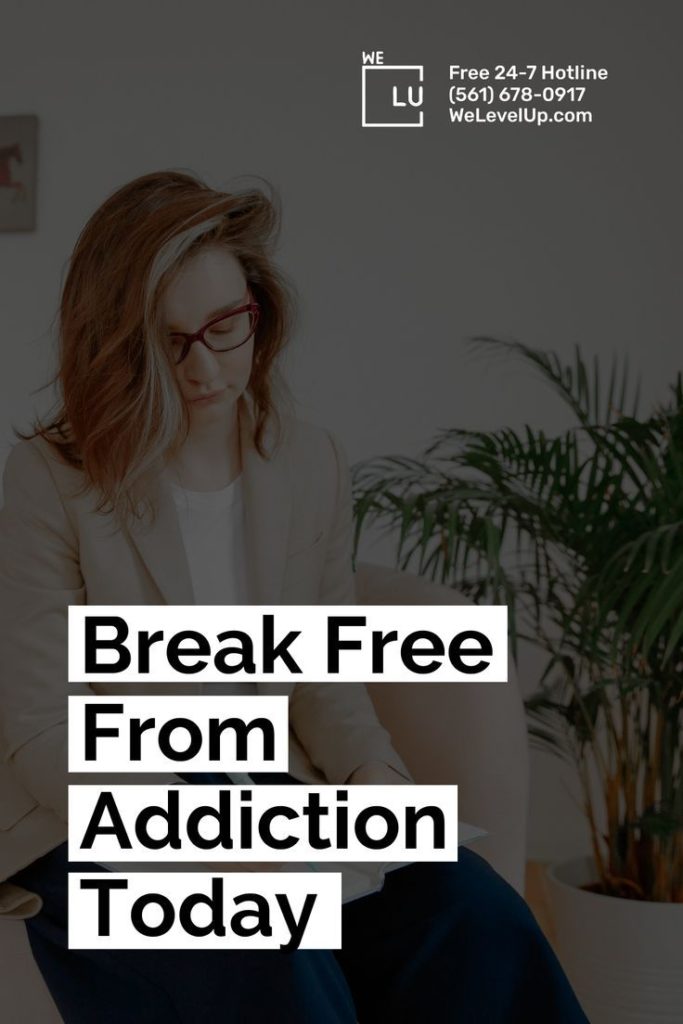
World-class, Accredited, 5-Star Reviewed, Effective Addiction & Mental Health Programs. Complete Behavioral Health Inpatient Rehab, Detox plus Co-occuring Disorders Therapy.
CALL(844) 597-1011End the Addiction Pain. End the Emotional Rollercoaster. Get Your Life Back. Start Drug, Alcohol & Dual Diagnosis Mental Health Treatment Now. Get Free No-obligation Guidance by Substance Abuse Specialists Who Understand Addiction & Mental Health Recovery & Know How to Help.
Top 5 Addiction To Benzos FAQs
-
Are benzos addictive?
Yes, benzodiazepines can be addictive due to their effects on the brain’s neurotransmitters, particularly the GABA receptors, which regulate relaxation and anxiety. Prolonged use can lead to tolerance, dependence, and withdrawal symptoms upon cessation, making them potentially habit-forming.
-
What are the common benzo addiction signs?
Common signs of benzodiazepine addiction include an increasing need for higher doses to achieve the desired effects, unsuccessful attempts to cut down or quit usage, spending excessive time obtaining or recovering from the drug’s effects, neglecting responsibilities due to drug use, and experiencing withdrawal symptoms when not using the substance. Behavior, mood, and social interaction changes may also indicate a potential addiction.
-
What are the least addictive benzodiazepines?
Among benzodiazepines, those with longer half-lives and slower onset of action tend to be considered less addictive. Diazepam (Valium) and chlordiazepoxide (Librium) are often considered less prone to the rapid development of tolerance and dependence compared to shorter-acting benzodiazepines like alprazolam (Xanax) or lorazepam (Ativan). However, all benzodiazepines carry some potential for dependence and should be used under medical supervision.
-
What are the most addictive benzodiazepines?
Short-acting benzodiazepines with rapid onset of action are generally considered more addictive due to their intense and immediate effects on the brain’s reward system. Benzodiazepines like alprazolam (Xanax), lorazepam (Ativan), and clonazepam (Klonopin) are often associated with a higher risk of developing tolerance, dependence, and addictive behaviors. It’s essential to use any benzodiazepine under close medical supervision to mitigate these risks.
-
Is benzodiazepine addictive when prescribed?
When taken exactly as prescribed and under the supervision of a healthcare professional, benzodiazepines are less likely to lead to addiction. However, even when used as prescribed, some individuals may still develop a physical dependence on these medications, which can result in withdrawal symptoms when discontinuing them. Regular communication with your doctor and following their guidance can help minimize the risk of addiction or dependence.
Prescription Drug Abuse, Prescription Medication Addiction Recovery & Sobriety Story Video.
Prescription drug addiction involving benzodiazepines is a serious concern that can emerge over time. When individuals take benzodiazepines for an extended period, their bodies can become accustomed to the calming effects of these medications, leading to the development of tolerance. As tolerance builds, individuals might need higher doses to achieve the same results, inadvertently setting the stage for addiction. This increasing dosage and dependence cycle can create a challenging situation where discontinuing the drug becomes difficult due to withdrawal symptoms, reinforcing the addictive behavior.
If you or a loved one is struggling with benzo addiction or other substance use disorder(s), call for a FREE consultation 24/7 at (561) 678-0917
Jen’s Addiction Recovery Testimonial Video Transcript.
“I wanted my life back. I was a shell of a person. I wanted to be trusted; I wanted relationships back that I lost, mainly my children and family.
It started innocent enough, I got into a car accident, and then I got sucked into the whole, you know, medication issue with the pills. And before I knew it, I was in a cloud.
I was sucked in by addiction, and with my mind, I kept thinking it was OK because a doctor was prescribing this for me, a doctor was giving me this, a doctor was giving me that. So, I didn’t think I was doing anything wrong.
Level Up supports my family and my relationships with my family, and they’ve helped me grow as a person.
When I first started there, I was so intimidated and scared, you know? But, they’ve taught me, they’ve taught me how to come into my own.
And then, you know, when I get the call from my twenty-one-year-old daughter in the middle of the day, to say ‘I love you, Mom.’ That’s amazing.”
Experience Transformative Recovery at We Level Up Treatment Centers.
See our authentic success stories. Get inspired. Get the help you deserve.
Start a New Life
Begin with a free call to an addiction & behavioral health treatment advisor. Learn more about our dual-diagnosis programs. The We Level Up Treatment Center Network delivers recovery programs that vary by each treatment facility. Call to learn more.
- Personalized Care
- Caring Accountable Staff
- World-class Amenities
- Licensed & Accredited
- Renowned w/ 100s 5-Star Reviews
We’ll Call You
Search We Level Up Benzo Addiction Detox, Mental Health Topics & Resources
Sources
[1] Bounds CG, Nelson VL. Benzodiazepines. [Updated 2023 Jan 7]. In: StatPearls [Internet]. Treasure Island (FL): StatPearls Publishing; 2023 Jan-. Available from: https://www.ncbi.nlm.nih.gov/books/NBK470159/
[2] Edinoff AN, Nix CA, Hollier J, Sagrera CE, Delacroix BM, Abubakar T, Cornett EM, Kaye AM, Kaye AD. Benzodiazepines: Uses, Dangers, and Clinical Considerations. Neurol Int. 2021 Nov 10;13(4):594-607. DOI: 10.3390/neurolint13040059. PMID: 34842811; PMCID: PMC8629021.
[3] Griffin CE 3rd, Kaye AM, Bueno FR, Kaye AD. Benzodiazepine pharmacology and central nervous system-mediated effects. Ochsner J. 2013 Summer;13(2):214-23. PMID: 23789008; PMCID: PMC3684331.
[4] Brett J, Murnion B. Management of benzodiazepine misuse and dependence. Aust Prescr. 2015 Oct;38(5):152-5. DOI: 10.18773/austprescr.2015.055. Epub 2015 Oct 1. PMID: 26648651; PMCID: PMC4657308.
[5] Ait-Daoud N, Hamby AS, Sharma S, Blevins D. A Review of Alprazolam Use, Misuse, and Withdrawal. J Addict Med. 2018 Jan/Feb;12(1):4-10. DOI: 10.1097/ADM.0000000000000350. PMID: 28777203; PMCID: PMC5846112.
[6] Detoxification and Substance Abuse Treatment [Internet]. Rockville (MD): Substance Abuse and Mental Health Services Administration (US); 2006. (Treatment Improvement Protocol (TIP) Series, No. 45.) Available from: https://www.ncbi.nlm.nih.gov/books/NBK64115/
[7] Inanlou M, Bahmani B, Farhoudian A, Rafiee F. Addiction Recovery: A Systematized Review. Iran J Psychiatry. 2020 Apr;15(2):172-181. PMID: 32426014; PMCID: PMC7215253.
[8] Institute of Medicine (US) Committee on Opportunities in Drug Abuse Research. Pathways of Addiction: Opportunities in Drug Abuse Research. Washington (DC): National Academies Press (US); 1996. 8, Treatment. Available from: https://www.ncbi.nlm.nih.gov/books/NBK232966/
[9] Benzodiazepines and Opioids – National Institute on Drug Abuse (NIDA)
[10] NIDA. 2018, October 18. Research suggests benzodiazepine use is high while use disorder rates are low. Retrieved from https://nida.nih.gov/news-events/science-highlight/research-suggests-benzodiazepine-use-high-while-use-disorder-rates-are-low on 2023, April 28
